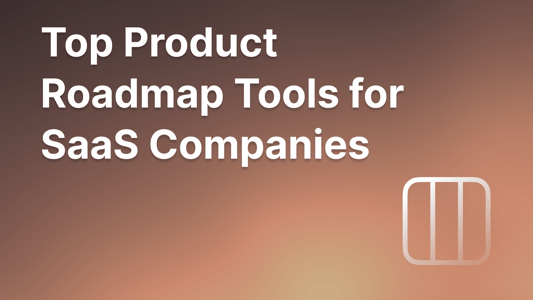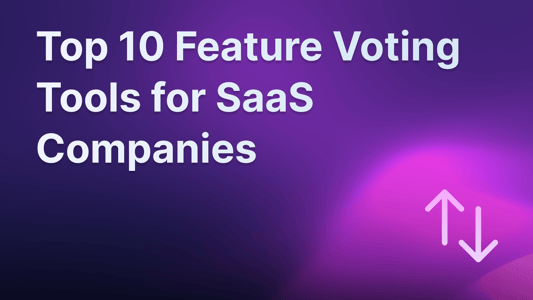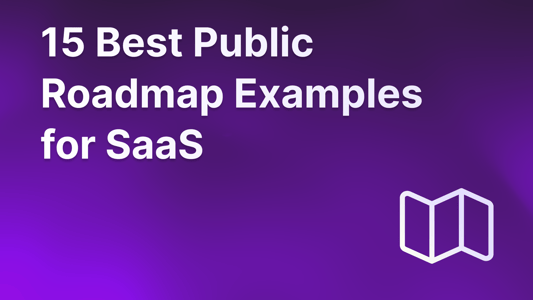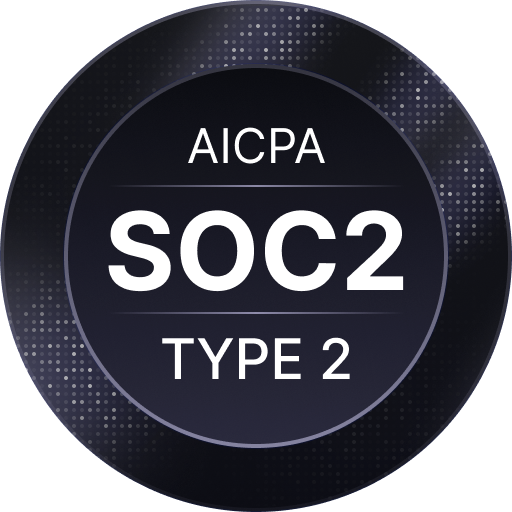Blog ComparisonsTop 7 Public Roadmap Tools for SaaS Companies in 2026
Top 7 Public Roadmap Tools for SaaS Companies in 2026
In this post, you'll find the perfect roadmapping tool for your SaaS. We've compared the top 7 roadmap tools of 2025, analyzing their pros, cons, and pricing to help you make the best choice!

A product roadmap is one of the most efficient ways for product teams to communicate their plans for the future. It shows your customers and internal teams what you're working on and when they can expect it. This keeps you accountable and helps everyone track progress in real time.
But on top of your product management efforts, you don't want to spend days and weeks creating roadmaps. Thanks to product roadmap software, anyone can translate product vision, mission and strategy into actionable, strategic roadmaps that anyone can read and follow.
These are the best public roadmap tools money can buy in 2026. 👇
The best product roadmap tools to try in 2026:
- ✨ Featurebase: All-in-one public roadmap & feedback tool, best value for money
- Productboard: Best for large enterprises & roadmap prioritization
- Canny: For super small or enterprise companies, no in-between
- Trello: Best for simplicity and task management
- Notion: Highly customizable, yet not optimized for collaboration with stakeholders
- featureOS: Good for collecting feedback, poor for prioritizing it
- Frill: Simple design and lightweight widgets
- Jira Product Discovery: Easy integration into the rest of the Jira ecosystem
But before you make the final choice, let's do a quick rundown of what to even look for in a good roadmapping tool. This way, you can pick the perfect tool for your needs! 🔎
How to pick the right tool
When choosing a public roadmapping tool, there are several key features to consider:
- User-friendly interface
The tool should be intuitive and easy to navigate. This ensures that both your team and your customers can use it without a steep learning curve. If it's easy to use, it's easy for collecting valuable feedback from customers. - Collaboration features
Look for tools that allow for real-time feedback and collaboration. This feature is essential for engaging with your customers and getting their input into your roadmap. - Customization options
The ability to customize your roadmap to reflect your brand and the specific needs of your project is crucial. Customization can range from branding elements to unique layout designs. Ideally, the tool should have a rich roadmap template library to help your team get started. - Integration capabilities
A good roadmapping tool should seamlessly integrate with other tools your company uses like Jira, Linear, Intercom, etc. Ask your product managers what they already use and choose a tool that plays well with your tech stack. - Transparency and privacy controls
While transparency is key in a public roadmap, you also need to have control over what information is made public and what remains confidential. For example, some customer feedback shouldn't be left for the world to see as it could be damaging to your business. - Analytics and reporting
The ability to track engagement and gather insights from your roadmap is valuable for understanding customer interests and the impact of your roadmap. - Affordability
There's no reason to pick a tool that costs 10 times as much as another while offering the same core features. For example, Featurebase pricing starts at $49 per month.
By keeping an eye on these factors, you can make sure you can pick the best road-mapping tool for your company. 👌
The 8 best tools for creating public roadmaps in 2026
Now that you have a quick overview of what to look for, you can better evaluate your options when choosing the right tool. We've combined a hand-picked list of the eight best public product roadmap tools for different types of companies.
1. Featurebase ✨

Featurebase is a modern platform designed to help SaaS product teams collect feedback, prioritize features, and communicate updates through public roadmaps. It also helps you, run surveys, release product updates, and build a Help Center—all in one place to build products users love.
It's used by some of the fastest-growing startups like Polymarket, Lovable, and Instantly to streamline feedback collection and improve product development processes. 💫
Top features:
- Public roadmaps – Create internal or public roadmaps to manage your development process
- Feedback portal – Create a public feedback portal to allow users to submit ideas and vote
- Sync customer data – Connect your product ideas with user data to associate feedback with specific customers
- Prioritize by revenue – See the real revenue potential behind new feature ideas and projects
- Changelogs – Notify users of product updates via emails and a dedicated changelog page
- In-app widgets – Embed feedback widgets directly into your app, making it easy for users to share suggestions
- User segmentation – Segment feedback by specific groups to determine what important customers need
- Surveys – Create targeted surveys with NPS, text, multiple-choice, or emoji responses
- Help Center – Provide intuitive self-serve help to your users and reduce support loads
- Integrations – Connect with Jira, Linear, Slack, and Intercom, among many other tools
- Plus, translations into 40+ languages, SSO, AI analysis, custom domain, API, and much more
Best for: Startups and SaaS companies seeking an affordable, user-friendly roadmap tool for public roadmapping and feedback management across the entire feedback cycle.
Pricing: Featurebase offers a free plan with unlimited feedback. Paid plans start at $29 per user per month. The onboarding is super fast, so there's no downside to trying it. 👇
✨ Start building roadmaps & collecting feedback with Featurebase for free →

2. Productboard

Productboard is a product management platform that assists teams in collecting user feedback, prioritizing features, and creating detailed product roadmaps. It's commonly used by larger organizations seeking to align their product development with customer insights and strategic objectives.
Top features:
- Feedback collection: Gather customer feedback from various channels into a centralized system for analysis and action.
- Feature prioritization: Evaluate and rank features based on criteria like user impact and business goals to inform development focus.
- Customizable roadmaps: Create and share tailored product roadmaps that reflect current priorities and future plans so you can communcate with potential and existing customers. There is a product roadmap template for just about any use case.
- Integration capabilities: Connect with tools such as Jira, Trello, and Slack to streamline workflows across teams and make it easy to translate customer feedback into action items.
- Customer insights: Link user feedback directly to features, ensuring that development decisions are informed by actual user needs.
Considerations: Productboard's feedback portal primarily displays ideas posted by administrators, limiting user interaction such as viewing, upvoting, or commenting on peers' suggestions. It lacks a changelog feature for announcing product updates and does not offer embeddable widgets for in-app feedback collection. Users may experience a complex interface with a steep learning curve.
Best for: Large enterprises and product teams seeking a comprehensive tool for feedback management and roadmap planning.
Pricing: Productboard's pricing starts at $20 per maker/month (Essentials plan).
3. Canny

Canny is a feedback management platform that helps product teams collect, prioritize, and track user feedback to inform their product development. It's commonly used by SaaS companies and startups aiming to build customer-driven products with the help of public roadmap tools.
Top features:
- Feedback collection: Gather user feedback through a centralized portal where customers can post suggestions and vote on ideas.
- Prioritization scoring: Rank and score feature requests based on customizable criteria to focus your development efforts on the product ideas that bring the most value.
- Public roadmap: Share your product development plans with users to keep them informed about upcoming releases and updates.
- Changelog announcements: Notify users about new features and product updates through integrated changelogs.
- Integrations: Sync with project management tools like Jira and GitHub to streamline workflows and maintain consistency across platforms.
Considerations: Canny's pricing is on the higher end, lacks bulk editing capabilities, does not support follow-up questions for deeper insights, and is only available in English.
Best for: SaaS companies and startups seeking a comprehensive feedback management solution to capture ideas and involve users in the product development process.
Pricing: Canny's pricing is quite high, with their most popular plan costing $399/month.
4. Trello

Trello is a widely used task management tool with Kanban boards to help teams organize and prioritize projects. It's favored by product managers and development teams for its simplicity and flexibility in visualizing workflows. While it's not a product roadmap tool
Top features:
- Kanban boards: Organize tasks using boards, lists, and cards to represent different stages of your project. Everything can be sorted into a particular project board column for an easy visual roadmap.
- Timeline view: Visualize project schedules and deadlines in this project management tool to ensure timely delivery.
- Calendar integration: Sync tasks with calendars to keep track of important dates and milestones.
- Customizable templates: Access a variety of templates to quickly set up boards tailored to your project's needs.
- Jira integration: Connect with Jira to streamline issue tracking and project management across platforms.
Considerations: Trello does not support feedback collection, there are no features to help you organize and prioritize ideas. It does not offer changelogs or email notifications to keep users informed about their requests. You can build your own public roadmap in this tool, but you can't create settings for users to view it publicly and privately.
Best for: Teams seeking a simple, visual project management software for basic project planning.
Pricing: Starts at $6 per user/month (Standard plan).
5. Notion

Notion is a versatile workspace that combines note-taking, task management, and wiki functionalities. Teams across various industries use it to create customized workflows, including product roadmaps, tailored to their specific needs.
Top features:
- Customizable databases: Design and structure databases to track projects, tasks, and milestones according to your team's requirements.
- Kanban boards: Visualize tasks and progress using Kanban-style boards for an organized overview of your roadmap and a way to communicate product development progress.
- Templates: Access a variety of templates to quickly set up and customize your product roadmap.
- Collaboration tools: Share pages, assign tasks, and comment in real-time to facilitate team communication.
- Integration capabilities: Connect with tools like Slack, GitHub, and Google Drive to streamline your workflow.
Considerations: Notion cannot collect customer feedback, may be less intuitive for those unfamiliar with modular productivity tools, and has limited native integration options compared to specialized roadmap tools.
Best for: Teams seeking a highly customizable workspace for creating and managing product roadmaps alongside other project management tasks.
Pricing: Starts at $10 per person/month (Personal Pro Plan).
6. featureOS

FeatureOS is a comprehensive platform designed for product teams to collect feedback, plan roadmaps, and share updates. It's commonly used by SaaS companies and startups seeking an all-in-one solution for managing product development processes.
Top features:
- Public and private roadmaps: Create and share roadmaps to keep users informed about upcoming features and product direction.
- Feedback boards: Collect and organize user feedback in a centralized location for easy review and action.
- Changelog announcements: Communicate product updates and new features directly to users through integrated changelogs.
- Knowledge base: Provide users with self-service support through a customizable knowledge base.
- JIRA integration: Sync issues with FeatureOS to turn them into a public Kanban roadmap, keeping users informed about progress.
Considerations: FeatureOS lacks user segmentation, does not support sorting feedback by customer revenue, and lacks built-in prioritization frameworks.
Best for: Product teams and SaaS companies looking for a feature-rich platform to manage feedback and roadmaps.
Pricing: Starts at $29 per month (Runway plan).
7. Frill

Frill is a straightforward tool for managing product roadmaps and gathering user feedback. It's favored by product teams, SaaS businesses, and startups for its clean design and ease of use.
Top features:
- Public roadmap: Share upcoming features and plans with users through a transparent, public roadmap.
- Feature voting: Allow users to vote on proposed features, helping prioritize development based on user interest.
- Announcements: Keep users informed about new features and updates with direct announcements.
- Feedback boards: Collect and organize user feedback in dedicated boards for easy access and review.
- Custom domains: Host your roadmap and feedback pages on your own domain to maintain brand consistency.
Considerations: Frill has a limited dashboard for managing and moderating feedback, lacks user segmentation, does not support sorting feedback by customer revenue, and does not send changelog emails.
Best for: SaaS companies, startups and agile development teams seeking a simple, user-friendly roadmap tool.
Pricing: Starts at $25 per month (Startup plan).
8. Jira Product Discovery

Jira Product Discovery is a tool designed for product teams to capture ideas, prioritize them using data and customer insights, and create roadmaps, all within the Jira ecosystem. It's ideal for organizations seeking to integrate product discovery seamlessly with their development processes.
Top features:
- Idea capture: Collect and organize product ideas and feedback in a centralized location.
- Prioritization frameworks: Evaluate and rank ideas based on impact, effort, and strategic alignment, then communicate priorities with other team members and customers.
- Customizable roadmaps: Develop tailored roadmaps to communicate product plans and progress.
- Integration with Jira Software: Link ideas directly to development tasks, ensuring a smooth transition from discovery to delivery.
- Collaboration tools: Engage stakeholders by sharing insights and updates within the platform.
- Impact assessment: Assess potential outcomes of ideas to inform decision-making.
- Custom views: Create personalized views, such as list, board, and timeline formats, to visualize ideas and workflows.
- Insights management: Aggregate and analyze data to support idea evaluation.
- Permissions control: Manage access levels for creators and contributors to maintain data integrity.
- Automation: Utilize automation rules to streamline repetitive tasks and processes.
Considerations: Jira Product Discovery is primarily designed for internal feedback management and lacks features such as public boards for user voting, built-in changelogs for release notes, and in-product feedback widgets.
Best for: Organizations already using Jira Software that want to integrate product discovery and development within a unified platform.
Pricing: JPD's pricing starts with a Free plan for up to 3 creators. The Standard plan is priced at $10 per creator/month.
Conclusion
The bottom line is that public roadmaps are a lot more than just planning tools for SaaS companies. They're a dynamic way to build transparency, user engagement, and trust.
Featurebase allows you to create your own public roadmap in seconds. It's fully customizable to align with your brand and lets users provide feedback and vote on ideas. When you update the status of an idea, all upvoters are automatically notified via email, ensuring that relevant users stay informed about their requests.
Plus, it has a Free plan that allows unlimited feedback and roadmaps for communicating your product's future development 👇
✨ Start collecting & managing feedback with Featurebase for free →






